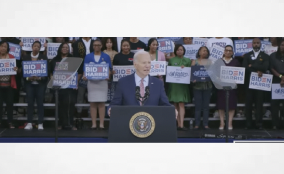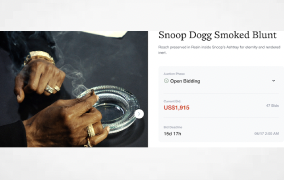The FDA is very strict about this and says no no no
According to the FDA website
Based on available evidence, we have concluded that THC and CBD products are excluded from the dietary supplement definition under section 201(ff)(3)(B) of the FD&C Act [21 U.S.C. § 321(ff)(3)(B)].
Under that provision, if a substance (such as THC or CBD) is an active ingredient in a drug product that has been approved under section 505 of the FD&C Act [21 U.S.C. § 355], or has been authorized for investigation as a new drug for which substantial clinical investigations have been instituted and for which the existence of such investigations has been made public, then products containing that substance are excluded from the definition of a dietary supplement.
The FDA considers a substance to be “authorized for investigation as a new drug” if it is the subject of an Investigational New Drug application (IND) that has gone into effect.
Under FDA’s regulations (21 CFR 312.2), unless a clinical investigation meets the limited criteria in that regulation, an IND is required for all clinical investigations of products that are subject to section 505 of the FD&C Act.
They say.
There is an exception to section 201(ff)(3)(B) if the substance was “marketed as” a dietary supplement or as a conventional food before the drug was approved or before the new drug investigations were authorized, as applicable. However, based on available evidence, FDA has concluded that this is not the case for THC or CBD.
The FDA indicates that they are not aware of any evidence that would call into question its current conclusions that THC and CBD products are excluded from the dietary supplement definition under section 201(ff)(3)(B) of the FD&C Act.
Interested parties are allowed to present the agency with any evidence that they think has bearing on this issue.
Our continuing review of information that has been submitted thus far has not caused us to change our conclusions.
When a substance is excluded from the dietary supplement definition under section 201(ff)(3)(B) of the FD&C Act, the exclusion applies unless FDA, in the agency’s discretion, has issued a regulation, after notice and comment, finding that the article would be lawful under the FD&C Act. To date, no such regulation has been issued for any substance.
Ingredients that are derived from parts of the cannabis plant that do not contain THC or CBD might fall outside the scope of this exclusion, and therefore might be able to be marketed as dietary supplements.
However, all products marketed as dietary supplements must comply with all applicable laws and regulations governing dietary supplement products. For example, manufacturers and distributors who wish to market dietary supplements that contain “new dietary ingredients” (i.e., dietary ingredients that were not marketed in the United States in a dietary supplement before October 15, 1994) generally must notify FDA about these ingredients (see section 413(d) of the FD&C Act [21 U.S.C. § 350b(d)]).
Generally, the notification must include information demonstrating that a dietary supplement containing the new dietary ingredient will reasonably be expected to be safe under the conditions of use recommended or suggested in the labeling.
A dietary supplement is adulterated if it contains a new dietary ingredient for which there is inadequate information to provide reasonable assurance that the ingredient does not present a significant or unreasonable risk of illness or injury (see section 402(f)(1)(B) of the FD&C Act [21 U.S.C. 342(f)(1)(B)]).
Numerous other legal requirements apply to dietary supplement products, including requirements relating to Current Good Manufacturing Practices (CGMPs) and labeling.
Information about these requirements, and about FDA requirements across all product areas, can be found on FDA’s website.


















